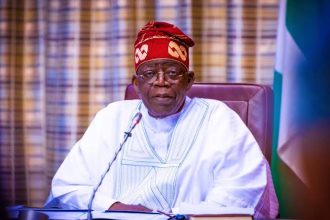Trade and currency sale data indicate that four years into the Nigeria-China currency exchange program, the deal is only beginning to scrape the surface of the enormous illiquidity barrier importers must overcome in order to remove products from the world manufacturing hub.
The Central Bank of Nigeria (CBN) had auctioned a total of CNY7.044 billion worth of yuan since its start as of the end of the second quarter, one year after the bilateral currency swap of CNY16 billion was renewed.
Indeed, the demand for the US dollar has continued to increase due to a number of variables, some of which include the numerous conversions required in international trade as a result of dollar benchmarking, the weak local currency, and the strong preference for the dollar over other currencies.
According to the CBN’s 2022 Financial Market Half-Year Report, a total of CNY1.263 billion was sold in 13 auctions in H1 2022, up from CNY1.217 billion in 13 auctions in H1 2021. Since the program began, the apex bank had sold CNY7.044 billion in addition to items from earlier auctions as of the end of June.
Although the second half’s performance status report for the program isn’t yet complete, experts predicted that it might not change noticeably from prior statistics.
The overall amount sold as part of the bilateral agreement is less than the total value of the agreement, which was vigorously negotiated for two years prior to the well publicized contract signing on April 27, 2018, by the chiefs of the two nations’ monetary institutions.
Before a memorandum of understanding (MoU) was signed in Beijing, officials from the CBN and the Peoples Bank of China (PBoC), led by their boss, Dr. Yi Gang, engaged in laborious negotiations for more than two years. This event was hailed as a game-changer in the effort to address the FX liquidity crisis.
“The transaction, which is valued at Renminbi (RMB) 16 billion or the equivalent of about $2.5 billion, is aimed at providing adequate local currency liquidity to Nigerian and Chinese industrialists and other businesses, thereby, reducing difficulties encountered in the search for third currencies,” the CBN had said.
The swap, according to top bank officials, will provide Nigerian businesses access to RMB liquidity while giving Chinese businesses access to naira liquidity, enhancing the volume, ease, and speed of transactions between the two nations.
Only 2.6% of the value of the commodities offered by Chinese enterprises to Nigerians could be paid for with the Renminbi processed and sold via the currency swap agreement. It represented around 2% of the overall trade value between Nigeria and China at the same strength. To realistically decrease the illiquidity risk, the currency swap contract value (CNY16 billion) does not appear to fully account for the volume of commerce between Nigeria and China.
A thorough naira-yuan agreement might cut the demand for foreign exchange for the importation of physical commodities by as much as over 20%. China alone was responsible for 26.95 percent of the expected N5.67 trillion in import expenses in Q3 2022.
A thorough naira-yuan agreement might cut the demand for foreign exchange for the importation of physical commodities by as much as over 20%. China alone was responsible for 26.95 percent of the expected N5.67 trillion in import expenses in Q3 2022.
Only N365.9 billion of this total was paid in dollars. However, in order to complete transactions, importers had to first get dollars (the main trade currency) then convert them to the currencies of other nations. Currency exchange agreements are designed to fix a significant flaw: the many conversions required in international trade as a result of dollar benchmarking and the ensuing increase in transaction cost.












